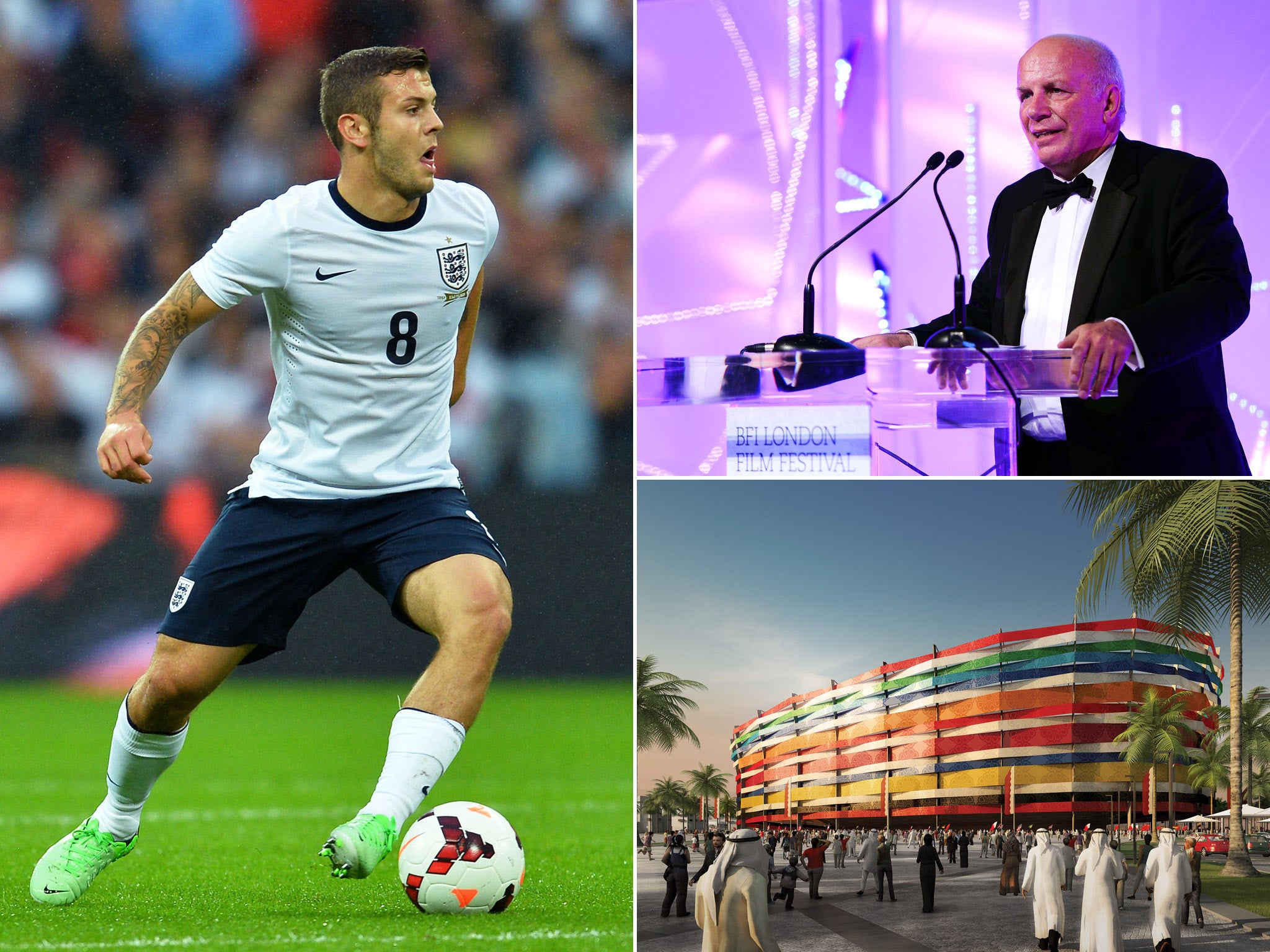Greg Dyke sets England target: Win the 2022 World Cup in Qatar
FA chairman has lofty ambitions for the national team - and sets out how they are achievable

Faced with the possibility of England being “unable to compete seriously on the world stage” because of a shortage of players appearing at leading clubs, the Football Association reverted to the default mode of English sport and set up a commission.
It will include representatives of the Premier League, the Football League, the League Managers' Association and the Professional Footballers' Association and is due to report in the New Year. Before then, views will also be invited from all interested parties, including supporters' groups, academics and even journalists.
The Premier League's inclusion, although many regard that body as a primary cause of the problem, is also designed to emphasise that as the new FA chairman Greg Dyke put it, this is no "declaration of war" and "no blame game".
His heavily trailed speech, made at a lunch given by FA sponsors Vauxhall, was titled "Future of the England Team" and made it clear that the future was anything but bright if present trends continued. He quoted the statistic that in the first season of the Premier League, 1992-3, 69 per cent of all players starting matches were qualified for England. Ten years later that figure was down to 38 per cent and last season it was 32 per cent.
On average there are about 70 English players appearing at that level each weekend, although Roy Hodgson, the England manager, believes the pool realistically available for the senior team is between 30 and 40. Hodgson recently ridiculed the figure of over 200 being available that was quoted by the PL's chief executive Richard Scudamore.
Dyke also mentioned Wigan Athletic having started the FA Cup final with one English player (Callum McManaman), Newcastle United having only one - the uncapped Steven Taylor - in their team on the opening weekend of the season and Sunderland having signed one Englishman among their 14 recruits this summer. "This is not, repeat not, a criticism of those particular clubs, of Premier League clubs in general or even of the League overall, but it does illustrate the growing problem we face," he said.
When Sir Trevor Brooking reported on the England Under-21 team's 6-0 victory against Scotland last month, he praised many of the players, but a few days later only three of the squad of 23 players started a Premier League game.
"The question I want to ask today is a simple one," Dyke said. "Do we let this trend continue or do we actually try to do something about it? Last season's figure for the Premier League was 32% English players starting games. What happens when that declines to 25%, to 20% or even 15%? Do we still ignore the problem and hope it goes away? Or do we take action now? Personally I think the situation is serious, very serious."
The commission will therefore ask three questions: why it has come to this, what can done about it and how can any proposals be implemented?
As a newcomer to the ranks of the FA and, comparatively, football, the former BBC director-general felt able to offer some criticism of the organisation, which had "not done as well as it should". Indeed, he saw that at first hand 20 years ago when involved as a television executive in the setting up of the Premier League: "The FA didn't use the unique opportunity it had to make stronger demands or seek necessary assurances from the fledgling league. But that's all history now - we are where we are."
History also says he was unwise to set the specific targets of England reaching the semi-finals of the 2020 European Championship (even if they hope to be staging some of the key matches) and to win the Qatar World Cup of 2022, whether or not it is staged in winter (as Dyke hopes) or summer (as the Premier League want).
"Going forward we will certainly give ourselves a much better chance of winning tournaments if we have a bigger talent pool of players to pick from," he added, "which means having more English players who are consistent starters in the Premier League."
If that does not happen, he concluded, "we will be letting down generations of English kids who might otherwise have made it at the top level in football but weren't given the chance" and "we will be letting down the England fans who turn up in their thousands here at Wembley or watch the England team in their millions on the television".
'Brave' speech earns applause within the game
Greg Dyke's vision for the future of English football has been described as "brave" after his speech in London.
The new Football Association chairman's comments were welcomed by the former FA chief executive Mark Palios, who did admit some trepidation about the bullishness of Dyke's line. "It's certainly a brave stance to take at the start of your tenure but, having said that, I'm delighted to hear it," he said.
"While the FA has a lot of things on its agenda the one thing that stirs the nation, and probably the one thing that will judge Greg Dyke's tenure and the FA in the medium term, is whether or not they can turn around what seems to be a pretty grim prospect for England teams going forward.
"I was pleased that he chose that as his topic but, of course, it is easy to talk about and is very hard to deliver."
The former England manager Glenn Hoddle said: "I like what I hear from Greg Dyke – here is a man who is setting targets way beyond his own likely term of office.
"He is not putting himself first, he is putting the England team and the game first."
Join our commenting forum
Join thought-provoking conversations, follow other Independent readers and see their replies
Comments